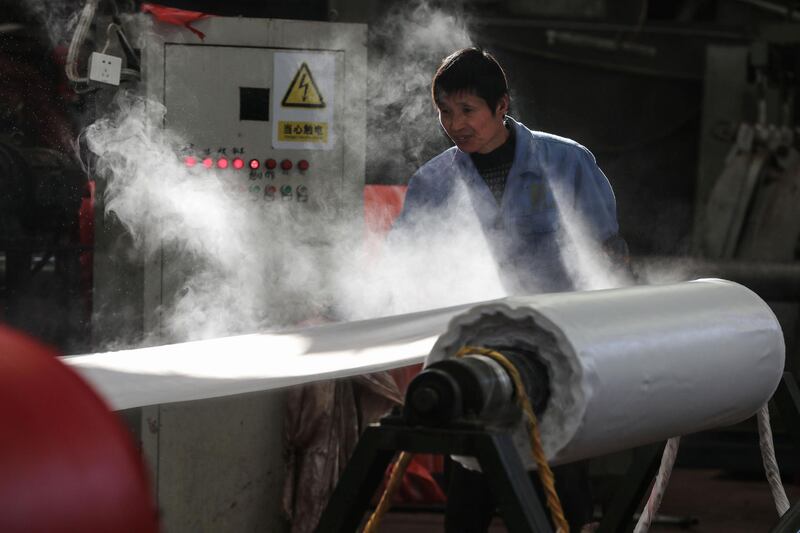After a week dominated by geopolitics and spent calibrating risk, the coming one should be back to basics.
Following the spike in risk aversion caused by events in Iraq, US stocks and the US dollar ended the week higher, while the price of oil closed lower than before the US drone strike on a senior Iranian commander. With the US and Iran unlikely to escalate things further for the time being, the chances are that direction can once again be set by economic fundamentals.
At least on the key policy issues of 2019 — US-China trade and Brexit — the year started relatively encouragingly, and needed to as the underlying economic backdrop remains a challenging one.
The apparent completion of a phase one trade deal between the US and China, to be signed this week, was undeniably a good start to the year, but the scale of the deal still appears quite limited with legacy tariffs between the two countries still largely in place. What is to be hoped is that the two sides will take confidence from a limited phase one deal, so that they can build on it and add further elements as the year progresses.
The most recent economic data continues to show a world can do without further shocks to the system. The World Bank expects global growth at 2.5 per cent in 2020, a very modest improvement from 2.4 per cent estimated for 2019. Like many other multilateral institutions, the World Bank pointed to trade disruptions acting as a drag on growth.
Most countries received downgraded growth projections with growth in China expected at 5.9 per cent, the eurozone at just 1 per cent and Japan at 0.7 per cent. The bank was more optimistic for emerging economies, however, expecting growth to accelerate from 3.5 per cent to 4.1 per cent. For the Middle East, the World Bank expects the UAE to expand by 2.6 per cent this year and Saudi Arabia by 1.9 per cent.
December data showed industry in the US continuing to decline with the ISM manufacturing index falling to 47.2, its lowest level for the year while manufacturing in the eurozone remains firmly in contraction. Indeed factory orders in Germany for November declined by 1.3 per cent from the previous month, falling well short of market expectations for a modest gain.
PMI figures out of China also declined in December according to the Caixin Composite figure. The PMI hit 52.6 from 53.2 a month earlier although the survey was likely taken before the odds of phase one US-China trade deal looked close.
Some optimism was in evidence in the services sector, at least, where the US ISM non-manufacturing index reached 55 for the fastest pace of growth in four months.
Synchronised monetary policy easing undertaken last year should ultimately give rise to some lift in global activity in 2020, but this will still largely be contingent on the removal of the policy overhangs related to trade. US December jobs data showing the labour market losing momentum was perhaps the most timely reminder that the US cannot afford the trade dispute to flare up again.
Non-farm payrolls rose by just 145,000 last month and, while the unemployment rate remained at 3.5 per cent, average hourly earnings rose by just 0.1 per cent month-on-month and 2.9 per cent year-on-year — the smallest percentage since 2018.
For the US Federal Reserve, the message from the employment report was that while the labour market remains tight, it is still not tight enough to put upward pressure on earnings. In this it is likely to reinforce the takeaway from the Fed’s December meeting minutes which displayed a dovish consensus to keep rates steady for 2020.
The potential easing in US-China trade tensions and resolution of Brexit will help to reaffirm the Fed’s go-steady policy and the market is not looking for any change in rates until well into the end of the year, if at all. And of course it goes without saying that the absence of renewed geopolitical tensions would also be helpful.
Tim Fox is chief economist & head of research at Emirates NBD







